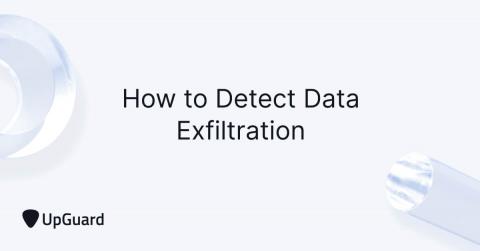How to Detect Data Exfiltration (Before It's Too Late)
A data exfiltration attack involves the unauthorized transfer of sensitive data, such as personal data and intellectual property, out of a target system and into a separate location. These transfers could either occur internally, through insider threats, or externally, through remote Command and Control servers. Every cyberattack with a data theft objective could be classified as a data exfiltration attack.










